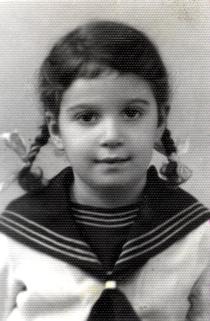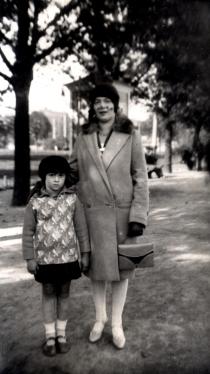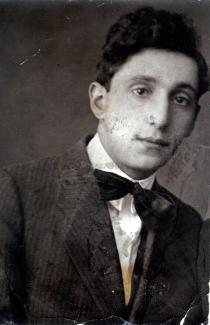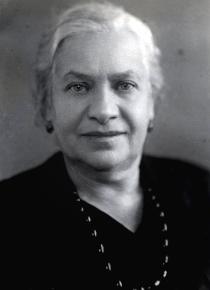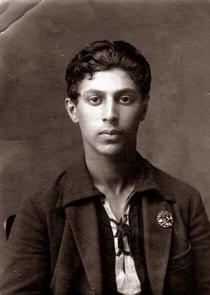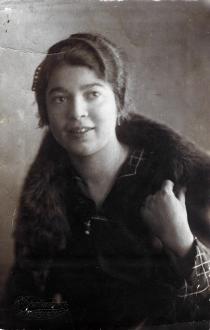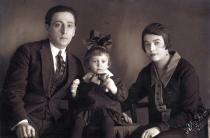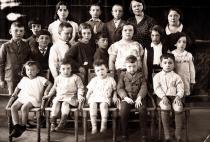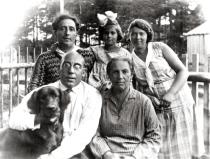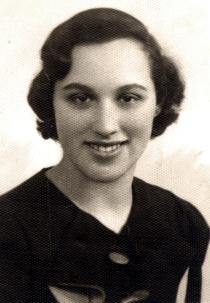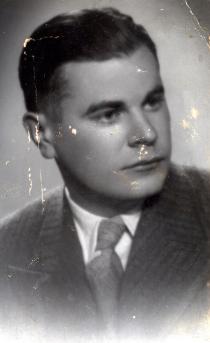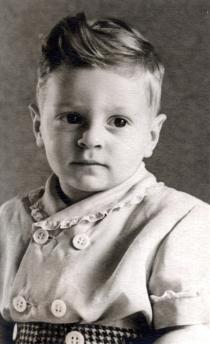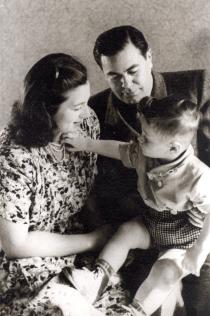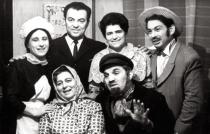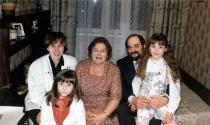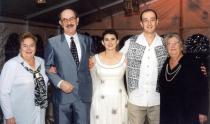In this photograph, I’m pictured with my husband Simon Libman and our son Elkond. The photo was taken in Tallin in 1949.
My husband could speak Russian, German, and Estonian fluently and they often used him as an interpreter in the Estonian Rifle Corps. When the war was about to end he was assigned to work as a translator at an Army Prosecutor's Office in Leningrad. After the war Simon served one more year in the Estonian Corps in Tallinn. In 1946, he was demobilized and assigned to the Department of Visas and Registration in the Ministry of Internal Affairs. When we met he was just getting his discharge from the Army. I dated Simon for several months, and then he went to my parents to ask for my hand. On my birthday party on 29th March 1946, with our relatives and friends present, I remember my father stood up and said, 'I'd like to introduce my daughter Sima's fiancé.' Our wedding was to take place on 29th June 1946, because my parents got married on the same day in 1923. At the beginning of May Simon and I went to Valga for a few days: he wanted to introduce me to his family. Living in Valga at that time were his mother and sister Sofia with her family. When we returned to Tallinn, we found out that my father had had a heart attack. He was lying in bed at home and Markovich, a very good physician, visited him daily. My father and he had been good friends since their youth. My father already began getting up again but then had two more heart attacks and died at the end of May. Naturally, Simon and I had no wedding. On 2nd July 1946, we simply had our marriage registered and I went to live with my husband.
In November 1947, I had a son. At first we wanted to name him Elhanon, after my father, but it sounded outdated, and my mother thought of a beautiful name for our baby boy: Elkond. After a year I was going to send our son into daycare and return to work, just like all other Soviet women, but my husband protested. He believed that the child had to be brought up by his mother at home. We could afford this because Simon made good money. He kept on working at the Ministry of Internal Affairs where he was appreciated and given a raise regularly. Our housing was improved as well. In 1948, instead of a small room in a communal apartment, we were offered two nice big rooms in a comfortable six-room apartment. In this new apartment we had only one family sharing it with us, and they were very good and respectable people. A few years later, we redesigned the apartment where we separated two rooms and lived there until 1977.

